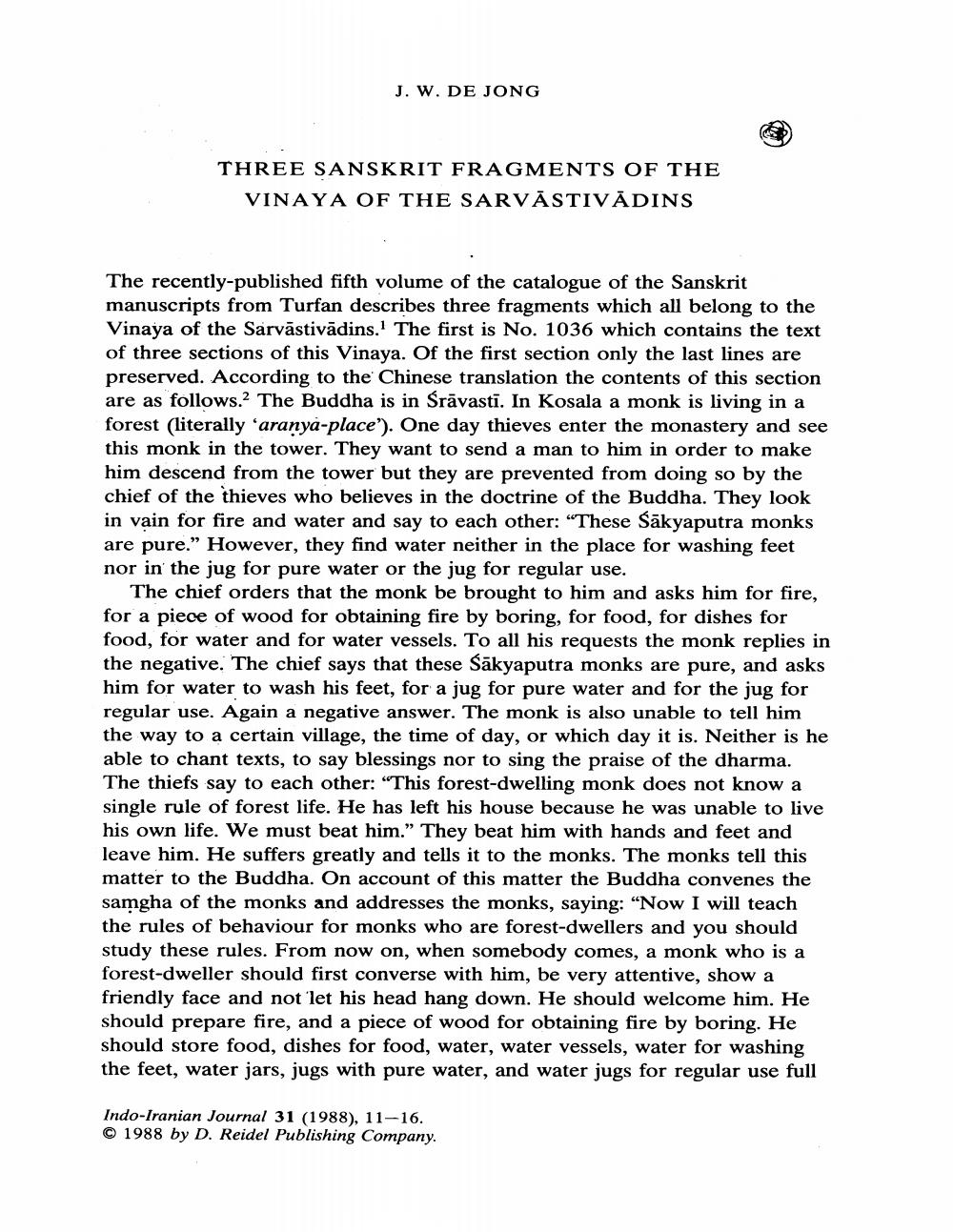Book Title: Three Sanskrit Fragments Of Vinaya Of Sarvastivadins Author(s): J W De Jong Publisher: J W De Jong View full book textPage 1
________________ J. W. DE JONG THREE SANSKRIT FRAGMENTS OF THE VINAYA OF THE SARVĀSTIVĀDINS The recently-published fifth volume of the catalogue of the Sanskrit manuscripts from Turfan describes three fragments which all belong to the Vinaya of the Sarvāstivādins. The first is No. 1036 which contains the text of three sections of this Vinaya. Of the first section only the last lines are preserved. According to the Chinese translation the contents of this section are as follows.2 The Buddha is in Srāvastī. In Kosala a monk is living in a forest (literally 'aranya-place'). One day thieves enter the monastery and see this monk in the tower. They want to send a man to him in order to make him descend from the tower but they are prevented from doing so by the chief of the thieves who believes in the doctrine of the Buddha. They look in vain for fire and water and say to each other: "These Sakyaputra monks are pure.” However, they find water neither in the place for washing feet nor in the jug for pure water or the jug for regular use. The chief orders that the monk be brought to him and asks him for fire, for a piece of wood for obtaining fire by boring, for food, for dishes for food, for water and for water vessels. To all his requests the monk replies in the negative. The chief says that these sākyaputra monks are pure, and asks him for water to wash his feet, for a jug for pure water and for the jug for regular use. Again a negative answer. The monk is also unable to tell him the way to a certain village, the time of day, or which day it is. Neither is he able to chant texts, to say blessings nor to sing the praise of the dharma. The thiefs say to each other: "This forest-dwelling monk does not know a single rule of forest life. He has left his house because he was unable to live his own life. We must beat him." They beat him with hands and feet and leave him. He suffers greatly and tells it to the monks. The monks tell this matter to the Buddha. On account of this matter the Buddha convenes the samgha of the monks and addresses the monks, saying: “Now I will teach the rules of behaviour for monks who are forest-dwellers and you should study these rules. From now on, when somebody comes, a monk who is a forest-dweller should first converse with him, be very attentive, show a friendly face and not 'let his head hang down. He should welcome him. He should prepare fire, and a piece of wood for obtaining fire by boring. He should store food, dishes for food, water, water vessels, water for washing the feet, water jars, jugs with pure water, and water jugs for regular use full Indo-Iranian Journal 31 (1988), 11-16. © 1988 by D. Reidel Publishing Company.Page Navigation
1 2 3 4 5 6
